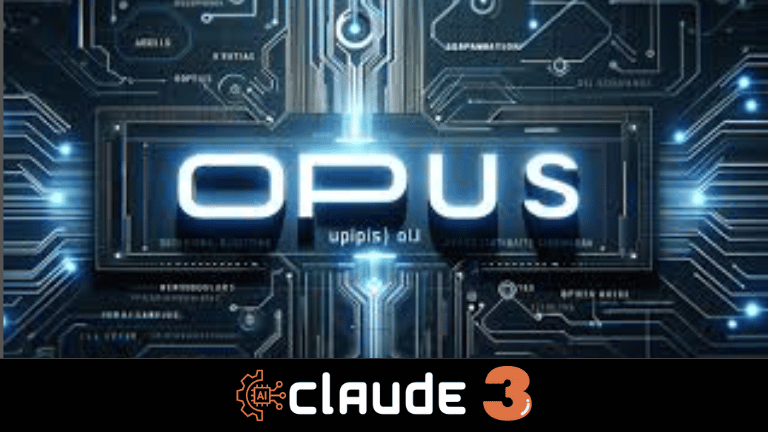Is Claude 3 Opus Free? As the world of artificial intelligence (AI) continues to evolve at a rapid pace, the question of access and affordability becomes increasingly relevant. Among the various AI models and systems available, Claude 3 Opus, a powerful language model developed by Anthropic, has garnered significant attention. In this comprehensive guide, we’ll explore the intricacies surrounding Claude 3 Opus, delving into its capabilities, potential applications, and most importantly, addressing the burning question: Is Claude 3 Opus free?
Understanding AI Language Models
Before we dive into the specifics of Claude 3 Opus, it’s essential to establish a foundational understanding of AI language models and their significance in the rapidly advancing field of artificial intelligence.
The Rise of AI Language Models
AI language models are a class of machine learning systems designed to process, understand, and generate human-like text. These models are trained on vast amounts of data, enabling them to learn and mimic the patterns and nuances of human language. By leveraging advanced algorithms and computational power, language models can perform a wide range of tasks, including text generation, translation, summarization, and question answering.
The development of powerful language models has been driven by breakthroughs in deep learning and natural language processing (NLP) techniques, as well as the availability of large-scale computing resources and vast language datasets. As these models become more sophisticated, they are increasingly capable of engaging in human-like conversations, understanding context and nuance, and providing insightful and coherent responses.
Applications of AI Language Models
AI language models have a multitude of applications across various domains, including:
- Conversational AI: Language models are at the heart of conversational AI systems, enabling virtual assistants, chatbots, and other interactive interfaces to engage in natural language conversations with humans.
- Content Generation: From creative writing and storytelling to article generation and content production, language models can assist in generating high-quality, coherent, and engaging written content.
- Language Translation: By understanding the nuances of multiple languages, language models can facilitate accurate and contextual language translation, bridging communication barriers across cultures.
- Information Retrieval and Question Answering: Language models can process and understand complex queries, retrieving and synthesizing relevant information from vast databases to provide concise and accurate answers.
- Sentiment Analysis and Text Classification: By analyzing the sentiment and contextual meaning behind written text, language models can assist in tasks such as sentiment analysis, spam detection, and content moderation.
As the capabilities of AI language models continue to advance, their applications are expected to expand further, revolutionizing how we interact with and leverage information in various domains.
Introducing Claude 3 Opus
Claude 3 Opus is a cutting-edge language model developed by Anthropic, a renowned artificial intelligence research company. This advanced system has garnered significant attention for its impressive capabilities and potential applications.
Overview of Claude 3 Opus
Claude 3 Opus is a large language model trained using a novel approach called “constitutional AI.” This approach aims to imbue the model with a strong sense of ethics and alignment with human values, ensuring that its outputs are beneficial and trustworthy.
Some key features and capabilities of Claude 3 Opus include:
- Natural Language Understanding: Claude 3 Opus excels at comprehending and interpreting human language, enabling it to engage in natural and coherent conversations on a wide range of topics.
- Knowledge Generation and Reasoning: The model can draw upon its vast knowledge base to generate informative and insightful responses, demonstrating strong reasoning and analytical capabilities.
- Creative and Analytical Tasks: From creative writing and problem-solving to data analysis and coding, Claude 3 Opus showcases versatility in tackling diverse tasks that require both creativity and analytical prowess.
- Ethical and Value-Aligned Outputs: Thanks to its constitutional AI training approach, Claude 3 Opus aims to provide outputs that are aligned with human values, promoting beneficial and trustworthy interactions.
- Multilingual Capabilities: Claude 3 Opus has been trained on data from multiple languages, enabling it to understand and communicate in various languages, making it a valuable asset for global applications.
With its advanced capabilities and commitment to ethical and beneficial outputs, Claude 3 Opus has the potential to revolutionize various industries and applications, from customer service and content creation to research and education.
Potential Applications of Claude 3 Opus
The versatility and power of Claude 3 Opus open up a wide range of potential applications across multiple domains. Here are some key areas where Claude 3 Opus could make a significant impact:
- Conversational AI and Virtual Assistants: Claude 3 Opus could power advanced conversational AI systems, enabling more natural and contextual interactions with virtual assistants and chatbots across various platforms and devices.
- Content Creation and Creative Writing: With its strong language generation capabilities and ethical training, Claude 3 Opus could assist writers, content creators, and marketers in producing high-quality, engaging, and trustworthy content.
- Education and Tutoring: Claude 3 Opus could revolutionize personalized learning by providing intelligent tutoring systems, answering complex questions, and adapting to individual learning styles and needs.
- Research and Analysis: Researchers and analysts could leverage Claude 3 Opus’s knowledge generation and reasoning capabilities to uncover insights, synthesize information, and facilitate data-driven decision-making.
- Customer Service and Support: Claude 3 Opus could power intelligent chatbots and virtual assistants, providing efficient and personalized customer support, addressing inquiries, and resolving issues in a natural and contextual manner.
- Language Translation and Localization: With its multilingual capabilities, Claude 3 Opus could facilitate accurate and contextual language translation, enabling better communication and understanding across different cultures and regions.
- Ethical AI Development: Claude 3 Opus’s constitutional AI approach could serve as a model for developing AI systems that are aligned with human values, promoting beneficial and trustworthy artificial intelligence applications.
As the field of AI continues to evolve, the potential applications of Claude 3 Opus are likely to expand further, shaping the way we interact with technology and leveraging its capabilities to solve complex challenges across various industries.
Is Claude 3 Opus Free?
Now, let’s address the burning question: Is Claude 3 Opus free? The answer is not a simple yes or no, as there are several factors and considerations to take into account.
Accessibility and Pricing Models
Anthropic, the company behind Claude 3 Opus, has adopted a flexible and multi-faceted approach to making the language model accessible. While some aspects of Claude 3 Opus are indeed free, others may involve various pricing models or require specific arrangements.
- Free Access for Research and Non-Commercial Use: Anthropic has made certain aspects of Claude 3 Opus available for free to researchers, academic institutions, and individuals interested in exploring the model’s capabilities for non-commercial purposes. This approach aligns with the company’s mission to advance AI research and foster innovation.
- Commercial Licensing and Paid Services: For commercial applications and large-scale deployments, Anthropic offers various licensing options and paid services tailored to the specific needs of businesses and organizations. These commercial arrangements allow companies to leverage the full power of Claude 3 Opus while ensuring proper licensing and support.
- Cloud-Based API and Subscription Models: Anthropic may also offer cloud-based APIs or subscription-based models that provide access to Claude 3 Opus’s capabilities on a pay-per-use or recurring basis. These models could cater to developers, startups, and organizations seeking scalable and flexible access to the language model’s functionalities.
- Partnerships and Collaborations: Anthropic actively engages in partnerships and collaborations with industry leaders, research institutions, and organizations across various sectors. These collaborations may involve tailored access and pricing models for Claude 3 Opus, enabling joint research, product development, or specialized applications.
By offering a range of accessibility options, Anthropic aims to strike a balance between fostering innovation, advancing AI research, and sustaining the development and ongoing improvement of Claude 3 Opus through commercial channels.
Factors Influencing Pricing and Access
Several factors influence the pricing and accessibility of Claude 3 Opus, including:
- Computational Resources: Training and running large language models like Claude 3 Opus require significant computational resources, including powerful hardware, cloud computing infrastructure, and energy consumption. These resources come at a cost, which must be accounted for in pricing models.
- Data Acquisition and Curation: Developing and maintaining a robust knowledge base for Claude 3 Opus involves acquiring, curating, and processing vast amounts of data from various sources. This process can be resource-intensive and may require licensing agreements or data acquisition costs.
- Research and Development Efforts: Anthropic’s ongoing research and development efforts .

FAQs
Is Claude 3 Opus completely free to use?
Yes, Claude 3 Opus is a free service for personal and non-commercial use. There are no subscription fees or hidden charges.
Are there any limitations on the free version of Claude 3 Opus?
The free version of Claude 3 Opus has some limitations compared to the paid version. For example, the free version may have a limit on the number of documents that can be processed per day or the file size that can be uploaded.
Can I upgrade to a paid version of Claude 3 Opus for additional features?
Yes, there is a paid version of Claude 3 Opus that offers additional features and capabilities, such as higher processing limits, priority support, and advanced document processing options.
Is there a trial period for the paid version of Claude 3 Opus?
Yes, Claude 3 Opus offers a free trial period for the paid version, during which you can try out all the premium features before deciding whether to subscribe.
How do I sign up for the paid version of Claude 3 Opus?
To sign up for the paid version of Claude 3 Opus, simply visit the official website and follow the instructions for upgrading your account. You will need to provide payment information to complete the upgrade process.
